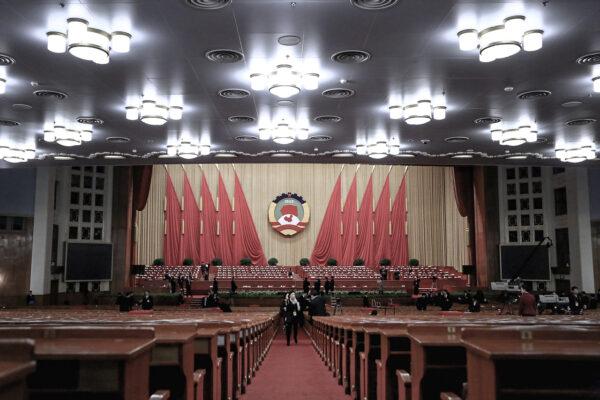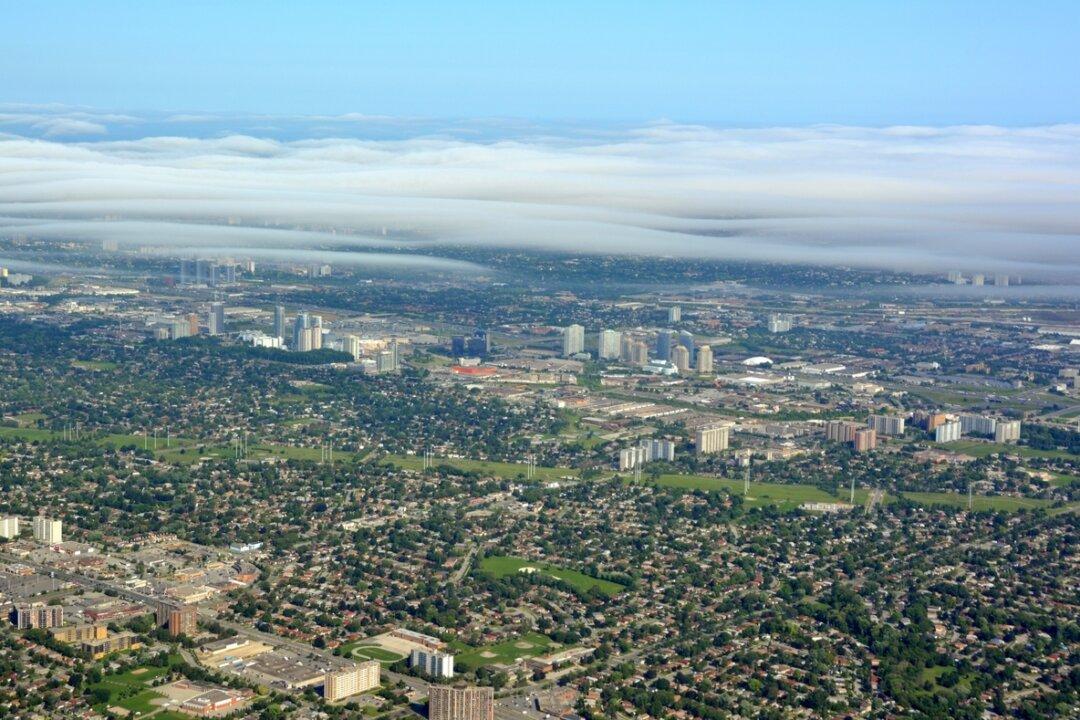Chinese police have set up three unofficial overseas “service stations” in Toronto as part of an operation that now consists of over 50 similar offices in dozens of countries, says a new investigative report.
These operations “eschew official bilateral police and judicial cooperation” and show the worrying growth of “transnational repression” and “long-arm policing” by the Chinese Communist Party (CCP), the report said, noting that the stations have reportedly targeted not only criminals and corrupt officials but also dissidents.
The stations, totalling 32 at the time of the report’s publication, are under the jurisdiction of the Fuzhou Public Security Bureau in Fuzhou City, Fujian Province–a branch of the Chinese Ministry of Public Security. They are also known as “110 overseas,” named after the police emergency phone number, 110, in China.
The Globe and Mail reported on Sept. 21 that it visited three addresses in the Greater Toronto Area that are on a list of overseas Chinese police service stations published by a Chinese state media, two in Markham and one in Scarborough.
All three stations are located in areas with large Chinese populations, but the Globe said no one they spoke to in the area was aware of a police service station or had heard of the Fuzhou Public Security Bureau.
Of the two Markham addresses, one was a private home while the other was a mall full of small Chinese businesses and restaurants. The third property, in a business park near a highway, is owned by the Canada Toronto FuQing Business Association, a federally incorporated non-profit.
Gloria Fung, president of Canada-Hong Kong Link, told The Epoch Times that the CCP’s overseas operations had been “subtle” in the past but that she finds the direct establishment of overseas police stations a “very rampant” act of the Chinese regime.
‘Persuaded to Return’ to China
In addition to the “110 overseas” stations, the Safeguard Defenders investigation also looked into a related campaign launched by the CCP in 2018 aimed at combating fraud and telecommunication fraud by Chinese nationals living abroad. Chinese authorities have claimed that an estimated 230,000 overseas Chinese nationals have been “persuaded to return” to China to face criminal charges between April 2021 and July 2022.The report said “persuasion to return” is a key method of the Chinese government’s “involuntary returns” operations, which include its “Fox Hunt” operation and broader “Sky Net” campaign. The method entails either “tracking down of the target’s family in China in order to pressure them through means of intimidation, harassment, detention or imprisonment into persuading their family members to return ‘voluntarily,’” or directly approaching the target “through online means or the deployment of—often undercover—agents and/or proxies abroad to threaten and harass the target into returning ‘voluntarily,’” according to the report.
Fujian Province’s Anxi County was named by China’s State Council in 2018 as a “key rectification area of the origins of criminals going overseas for fraud.” Subsequently, Fujian provincial departments at all levels were instructed to carry out five measures against fraud suspects, including demolishing any property allegedly built using illicit money, banning the suspects’ children from studying in public schools, and suspending all medical insurance subsidies and confiscating the passports of the suspects. These actions were “to be taken before any suspect was taken before a court of law,” the report said.
Such measures “leaves legal Chinese residents abroad fully exposed to extra-legal targeting by the Chinese police, with little to none of the protection theoretically ensured under both national and international law,” the report said, noting that Chinese authorities are also targeting non-suspects living abroad.
Nine Forbidden Countries
The report said that Chinese authorities have designated nine countries as having serious fraud, telecom fraud, and web crimes and are forbidding Chinese nationals to stay in those countries without “good reason.”The countries include Cambodia, Indonesia, Laos, Malaysia, Myanmar, the Philippines, Thailand, Turkey, and the United Arab Emirates.
However, the report noted that “among suspected criminals there are also entirely innocent people simply living in the wrong country, as well as victims themselves who have been forced into such illegal acts through threats, smuggling and intimidation.”
“[But] the police told her that according to the government’s policy, Chinese citizens staying in the nine fraud-related countries are required to return unconditionally. After that, she continually received messages from the local police asking her to return,” the report said.
On May 5, police informed Li that she had been put on the telecom suspect list and warned that her mother’s house would be cut off from power and water supplies. Her mother’s house was later spray-painted with the words “House of Telecom Fraud” and a policy notice was posted next to the spray-painting.
Links to United Front System
The Canada Toronto FuQing Business Association (CTFQBA), which owns the property where one of the three 110 overseas stations in Toronto is located, says on its website that it was established “under the guidance” of a number of Chinese and Fujianese government organizations, including a municipal committee of the United Front Work Department, according to the Globe article.During a session of the Thirteenth People’s Congress of Fujian Province this March, CTFQBA honorary president Weng Guoning praised the 110 overseas program, saying it gave him “the warmth” of the motherland, reported the All-China Federation of Returned Overseas Chinese. This federation is also a key organization run by the United Front, according to a report titled “The Party Speaks for You” published by the Australian Strategic Policy Institute in June 2020.
The Epoch Times made multiple attempts to contact CTFQBA for comment. Someone from the organization who answered a phone call didn’t respond to questions. Subsequent calls were unanswered.The Safeguard Defenders report said that “at first glance at least some of the associations abroad are tied to the United Front system”—an agency that is “seeking to co-opt and influence ’representative figures’ and groups inside and outside China, with a particular focus on religious, ethnic minority, and diaspora communities.”
“Rapidly emerging evidence points to extensive online campaigns and the use of ‘Overseas Police Service Stations’ being used in these operations on five continents, often using local ’Chinese Overseas Home Associations’ linked to the CCP’s United Front Work,” the report said.
“Overseas hometown associations, while often providing genuine services to the community, have by now become overwhelmingly co-opted by the CCP’s United Front organizations, which seek to increasingly control the Chinese diaspora.”





